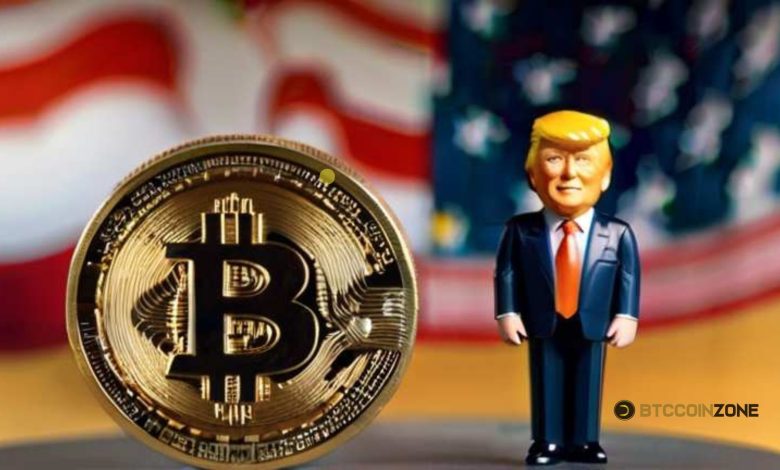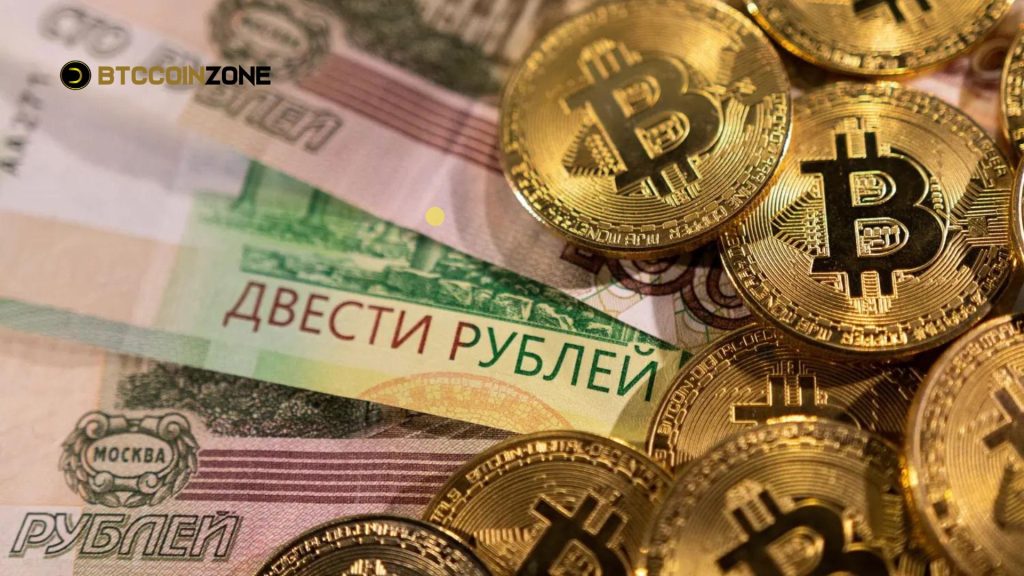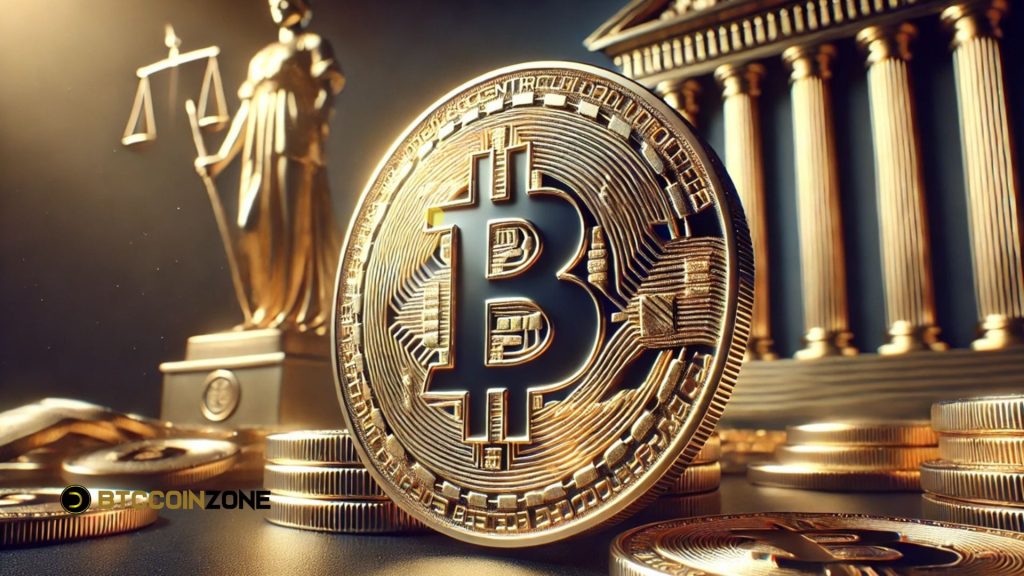Trump Bitcoin Today Comparing Cryptocurrency and Politics

Trump Bitcoin Today: The meteoric rise in value and acceptance of cryptocurrencies like Bitcoin over the last decade has sparked discussions in the political sphere, regulatory agencies, and the financial industry. Ex-President Trump, who has spoken out strongly against Bitcoin and other cryptocurrencies, is a key figure in these discussions. Even though many prominent figures in the financial sector see Bitcoin as the currency of the future, Trump has been a vocal opponent. This essay investigates Trump’s stance on Bitcoin, draws parallels between the political and cryptocurrency spheres, and investigates the larger consequences of this dynamic.
Trump’s Bitcoin Views: Discussion
The president’s stance on Bitcoin has remained unchanged during his reign. In July 2019, Trump resorted to Twitter to express his dislike of Bitcoin and other cryptocurrencies, noting. He tweeted his worries about the potential use of cryptocurrencies in the laundering of illicit funds and the trafficking of illegal substances. According to Trump, no decentralised digital money should be permitted to challenge the dominance of the U.S. dollar.
Trump continued to be negative even after he left office. In an interview he gave in 2021, he called Bitcoin a “scam” and restated his conviction that it devalues the dollar. The instability of the global financial system, the absence of regulatory supervision, and the volatility of Bitcoin are the main concerns of Trump.
Bitcoin and Trump’s Opposition
To understand Trump’s Bitcoin reluctance, consider his economic and political ideology. Trump has always favoured a robust U.S. economy and dollar dominance in global commerce. Since Bitcoin and other cryptocurrencies are decentralised, they undermine this existing quo.
Bitcoin sceptics echo Trump’s volatility fears. The bitcoin market is notoriously volatile. Bitcoin’s value fluctuated from all-time highs to significant drops in 2021, raising questions about its stability as a store of value or alternative to traditional currencies. The anonymity of cryptocurrencies raises concerns about their usage in illegal activities. Trump and other sceptics believe Bitcoin might aid money laundering, tax evasion, and terrorism financing. These concerns add to his opposition to Bitcoin adoption across the board.
Cryptocurrency and Politics: A Complex Relationship
There are several facets to the connection between politics and cryptocurrency. Other political leaders and politicians have embraced cryptocurrencies as creative financial tools with the potential to transform the world economy, in contrast to Trump’s scepticism and hostility. Bitcoin is seen by some politicians, particularly libertarians, as a means to lessen the role of the government in money and to encourage individual financial autonomy.

They contend that people can have greater control over their own money with decentralised currencies since they are not tied to governments or central banks. Conversely, the regulatory difficulties offered by cryptocurrencies are a growing worry for governments and regulators worldwide. There have been demands for more regulation and supervision of Bitcoin due to concerns about tax dodging, money laundering, and the possible disruption it could cause to established financial institutions.
Trump Opposition vs. Other Politics
Trump is a prominent Bitcoin and cryptocurrency hater, but not all politicians agree. Some of Trump’s party members, especially libertarians, support Bitcoin. Senator Cynthia Lummis of Wyoming has openly embraced Bitcoin, saying she wants it in the U.S. financial system for years to come. Lummis and others regard Bitcoin as a hedge against inflation, especially given the U.S. government’s economic policies, which have raised dollar stability concerns.
Bitcoin, a decentralised and deflationary asset, can store value like gold, they say. Progressive politicians also want blockchain and cryptocurrencies to democratise money and decrease the dominance of huge financial institutions. In his presidential campaign, Andrew Yang called for clearer and more supportive cryptocurrency legislation.
Political rhetoric affects cryptocurrency markets.
The market value of cryptocurrencies is susceptible to political discourse. Markets react to the possibility of more regulation or opposition from governments when prominent personalities, like as Donald Trump, speak out against Bitcoin. This can cause short-term price volatility. On the flip side, price increases in Bitcoin are often prompted by politicians voicing their support for the cryptocurrency.
An example of this is the dramatic increase in the price of Bitcoin that occurred in response to the announcement that El Salvador would accept Bitcoin as legal tender in the year 2021. This exemplifies the power of political speech and decision-making to greatly affect the value of cryptocurrencies.
Bitcoin’s Future in Politics and Governance
As Bitcoin and other cryptocurrencies gain acceptance, their political importance may grow. Governments worldwide are seeing blockchain technology’s possibilities in governance, voting, and digital identity verification, not simply finance.

The U.S. cryptocurrency regulatory landscape is developing. Though Trump and others have urged for more control, there is a growing consensus that cryptocurrency restrictions are ineffective. Instead, authorities are balancing innovation with consumer and financial market protection. Trump’s criticism of Bitcoin may influence U.S. cryptocurrency policy. As the market evolves and more institutional investors enter, lawmakers may be pressured to implement more pro-digital currency regulations.
Also Read: Bitcoin Resistance Levels Today, Understanding Market Dynamics
In Summary
The fact that Donald Trump is against Bitcoin is indicative of larger worries regarding the hazards associated with Bitcoin use. Many of his detractors in the cryptocurrency sector share his concerns that Bitcoin would weaken the dollar, make it easier for criminals to transact, and cause financial instability. Other political heavyweights, however, have rallied behind Bitcoin’s ascent because they view it as a means to financial inclusion and creativity.
The link between cryptocurrencies and politics is going to get more complicated as its influence grows. Even while Trump is still very much against it, the political spectrum as a whole is split: some see Bitcoin as the currency of the future, while others see it as a danger to the established international monetary system. How political leaders, regulators, and governments handle this changing environment will determine Bitcoin’s political destiny.
FAQs
Q1. What is Donald Trump’s view on Bitcoin?
Ans: Donald Trump has been a vocal critic of Bitcoin, calling it a “scam” and expressing concerns about its volatility and potential to compete with the U.S. dollar. He believes Bitcoin poses a threat to the global financial system and facilitates illegal activities.
Q2. How do other politicians view Bitcoin?
Ans: While Trump is critical of Bitcoin, other politicians, such as Senator Cynthia Lummis, have embraced it as a hedge against inflation and a decentralized financial tool. There is a growing divide in political opinions regarding cryptocurrency.
Q3. Does political rhetoric affect Bitcoin’s price?
Ans: Yes, political statements can influence Bitcoin’s price. For example, negative rhetoric from influential figures like Trump can cause short-term price drops, while supportive comments from politicians can boost investor confidence.
Q4. How could Trump’s opposition shape future regulation?
Ans: If Trump or politicians with similar views were to influence policy, we could see stricter regulations on Bitcoin and other cryptocurrencies, focusing on issues like fraud, tax evasion, and money laundering.
Q5. What is the future of cryptocurrency in politics?
Ans: As cryptocurrency becomes more mainstream, its role in politics will likely expand. Governments may embrace blockchain technology for governance, while regulators will need to address challenges related to consumer protection and market stability.




